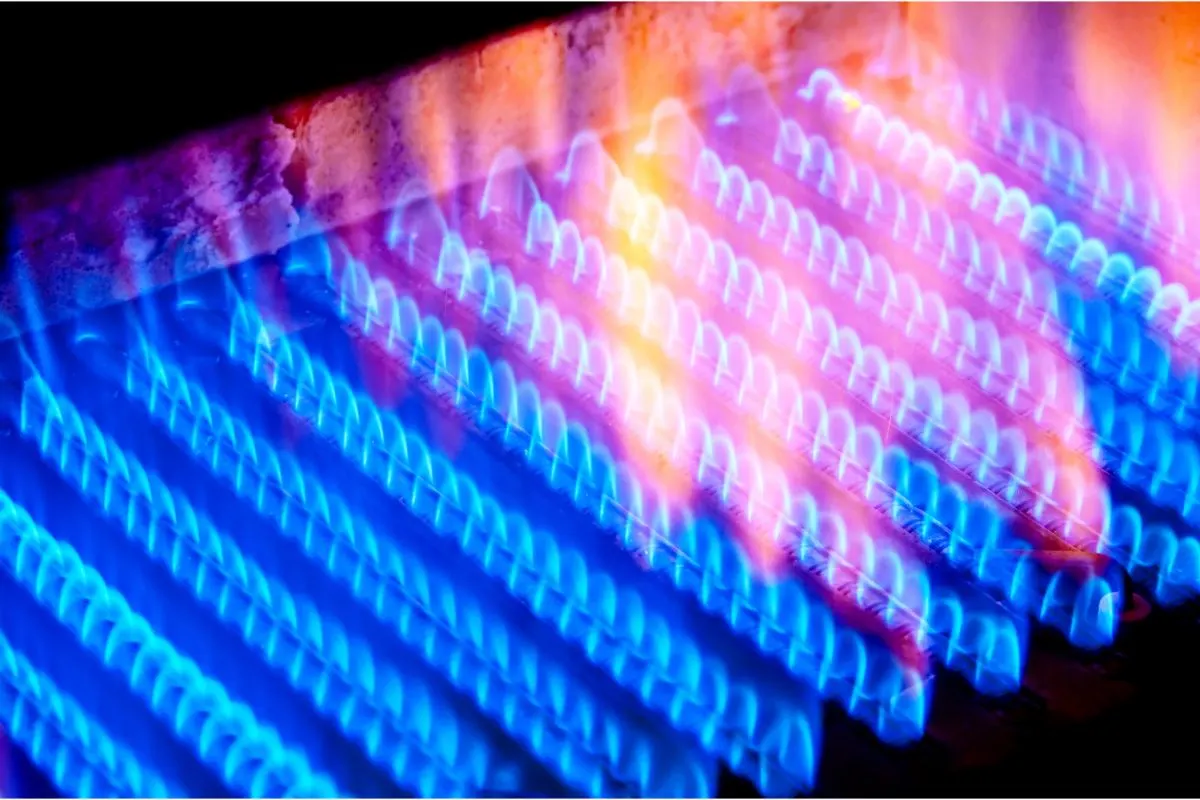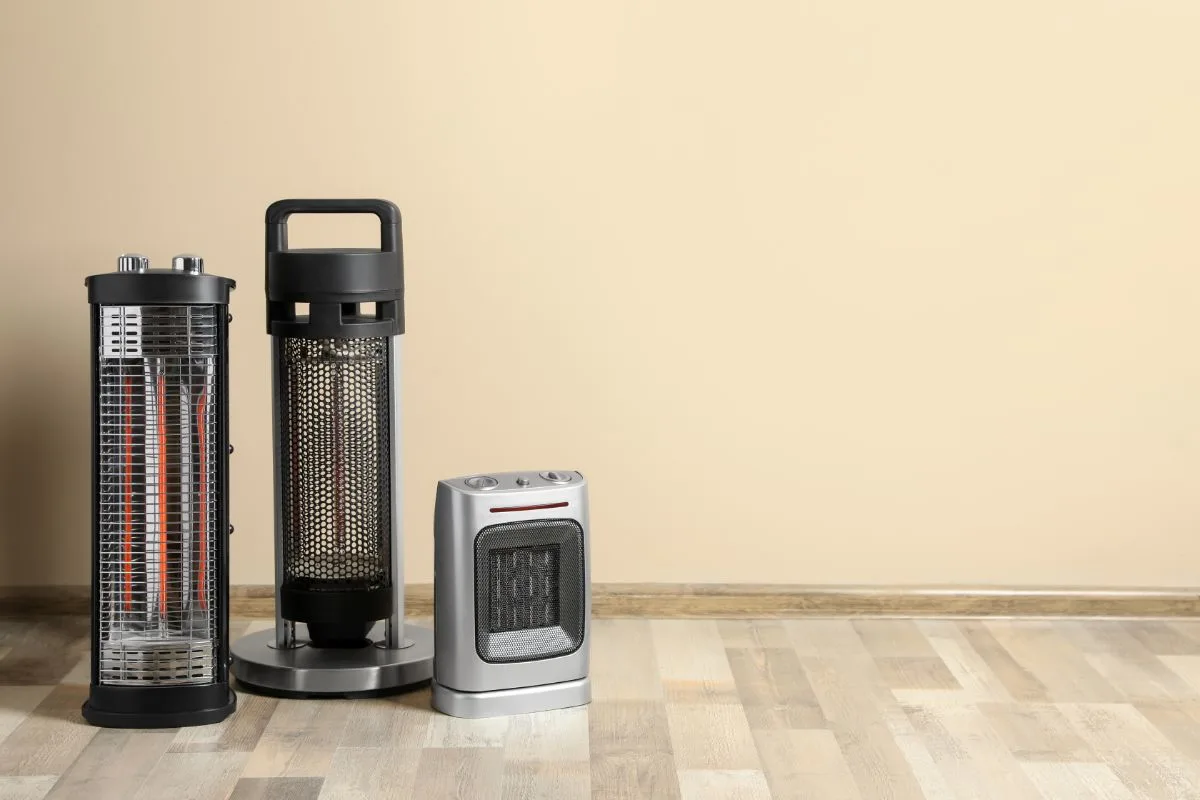
While images of camping usually feature sunny skies and summer locales, the truth is that dedicated RV travelers take their campers and trailers out in all kinds of weather.
These modern-day, sophisticated rigs provide all the comforts of home, no matter how far from home they are. One of the most important components of an all-weather RV is the heater. These can be fueled by propane or electricity, but which is the best choice for you?
Related: How Long Do RV Water Heaters Last?
Propane

Most RV heating systems are made to run off propane. This means a variety of pros are associated with it:
- Your propane heater is a full system that delivers uniform heat throughout your RV through ductwork.
- A thermostat, similar to one in a house, allows you to set the temperature you want, and the heater does the rest.
- If you are camping in a location without electricity, you can still run your heater without needing a generator.
- Propane tank refills are available at many RV facilities and campsites.
For some RV owners, there has been a movement away from propane to electricity to run their heaters. This is because propane also comes with some drawbacks:
- If propane refills are not readily available, you may have to leave your campsite and drive a distance for a full tank.
- Lugging heavy refills is not fun.
- If you want to zone different areas in your RV, you cannot do this with a whole propane system.
- Most propane systems are not efficient, so some heat is lost, which wastes resources.
- Campers looking for a more sustainable approach may want to explore options besides propane.
- To keep your RV heated while in storage, you may need to constantly replace propane tanks.
Electricity

Electricity may be a means of heating your RV that is even more familiar to most people. Like propane, there are pros and cons to using electricity. Here are some of the reasons in favor of electricity:
- By using wall-mounted or portable box heaters, you can heat different areas in your RV, so everyone is comfortable.
- Radiant heaters are also a good kind of electrical heater that are very quiet and energy-efficient.
- Newer models resemble a small fireplace, so you can heat an area and add a little ambiance to your décor.
- Many campsites include electricity in the site fee, so there is no additional cost when you turn on the heat.
- There’s also no need to deal with empty propane tanks that need refills.
- If your RV storage is in a confined space, you don’t have to worry about the fumes emitted by propane while you heat it in the off-season.
Using electricity to heat your RV may also have some shortcomings:
- Some box heaters may have requirements for the distance between the heater and other items like furniture. This may make it difficult to use them in a small space.
- The heating elements are usually protected, but even then, the front of the heater could be hot enough to burn someone if they touch it.
- Newer heaters have safeguards to shut them off if they tip over or become overheated. Even with these precautions, you may not want to leave them unattended.
- Heating up your RV may take longer with smaller, regional heaters.
There is no right or wrong answer to how you heat your RV, but only you can decide which choice makes the most sense. Think about your camping and traveling habits and destinations. Do you prefer largely remote locations?
If you have regular campgrounds that you visit yearly, you may have a good indication of the cost and availability of electricity, and this can inform your decision.
Are you a short-term camper? Using your propane heating system might be your best bet because your supply of propane might not need to be replenished.
If your camping habits mean that you aren’t usually in the great outdoors when the temperatures fall, you may want to stick with the heating system that came in your RV. If it works well and you have it regularly serviced, there’s no reason to reinvent your heating options for the occasional cool evening.
Cost Differences

Portable propane tanks come in a variety of sizes, from 20 lbs. to 40 lbs. Each pound represents approximately ¼ gallon of liquid propane, so a 20-pound tank will hold about five gallons. The price of propane fluctuates but can range from $2 to $5 a gallon.
There is also a cost if you are exchanging your tank, which may bring your cost closer to $5 or $6 a gallon. One thing to keep in mind is that the larger the tank, the heavy it is and the harder it can be to exchange.
Look at your RV manual or check some online forums to get an idea of how much propane might be needed for your planned trips. Consider the length of your stay, average temperatures, and your own comfort levels.
As I mentioned before, the cost of electricity depends on where you are staying. Don’t be fooled by thinking that an onboard generator will cut your costs. Remember that you’ll need some kind of fuel to run the generator.
The electric heaters themselves can range from $30 up to hundreds, depending on their wattage capacity. More decorative heaters will also cost more.
Don’t be tempted to buy used, older heaters. They may not have some of the safety features that are justifiably required of newer models.
Finally, electric heaters may be an excellent choice if you are purchasing an older RV with a propane heater that isn’t working. If you are rarely in a situation where heat is needed, switching to electric heaters may be cheaper than replacing the propane unit.
Bring on the Heat
There are some newer systems that seek to switch over RV propane heating systems to electrical. These hybrid systems offer the ability to switch from electric to propane as a heating source depending on your situation.
Whatever you choose, planning ahead will allow you to enjoy your travels without leaving the comforts of home behind.
Sources:
